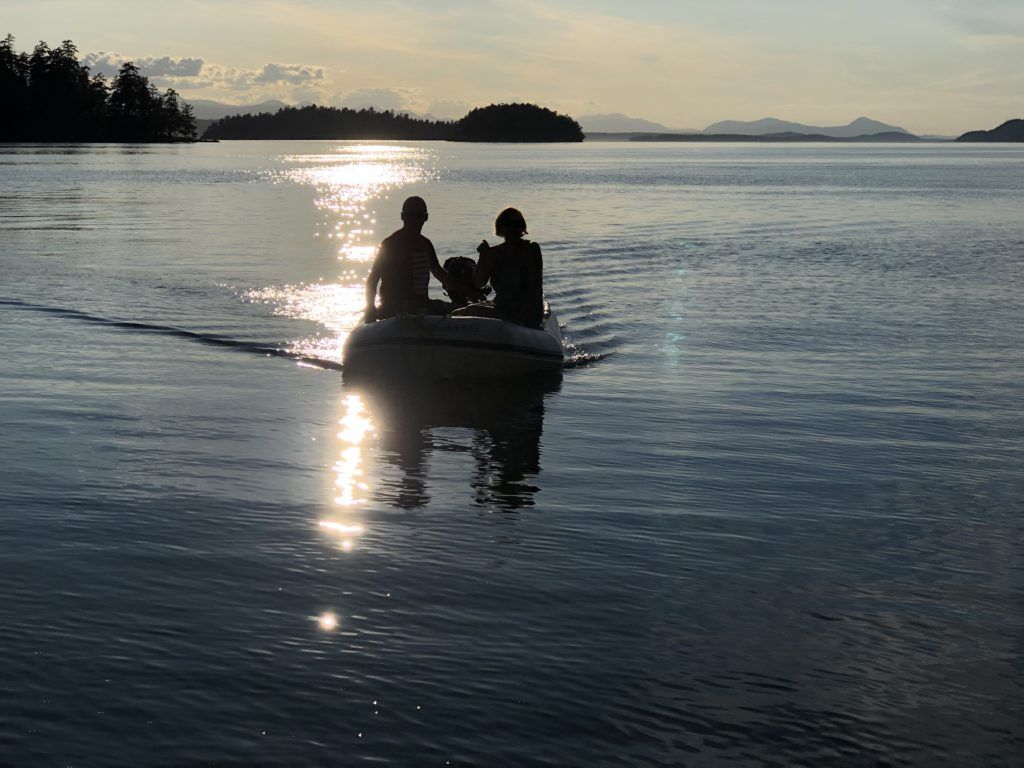
While recreational boating is a great way to experience nature, it can have numerous impacts on the environment - aquatic invasive species can be spread, cleaning agents can pollute, and where you anchor can damage habitat. Learn how you can take care of these places that fill your cup (literally and figuratively) while out on the water.
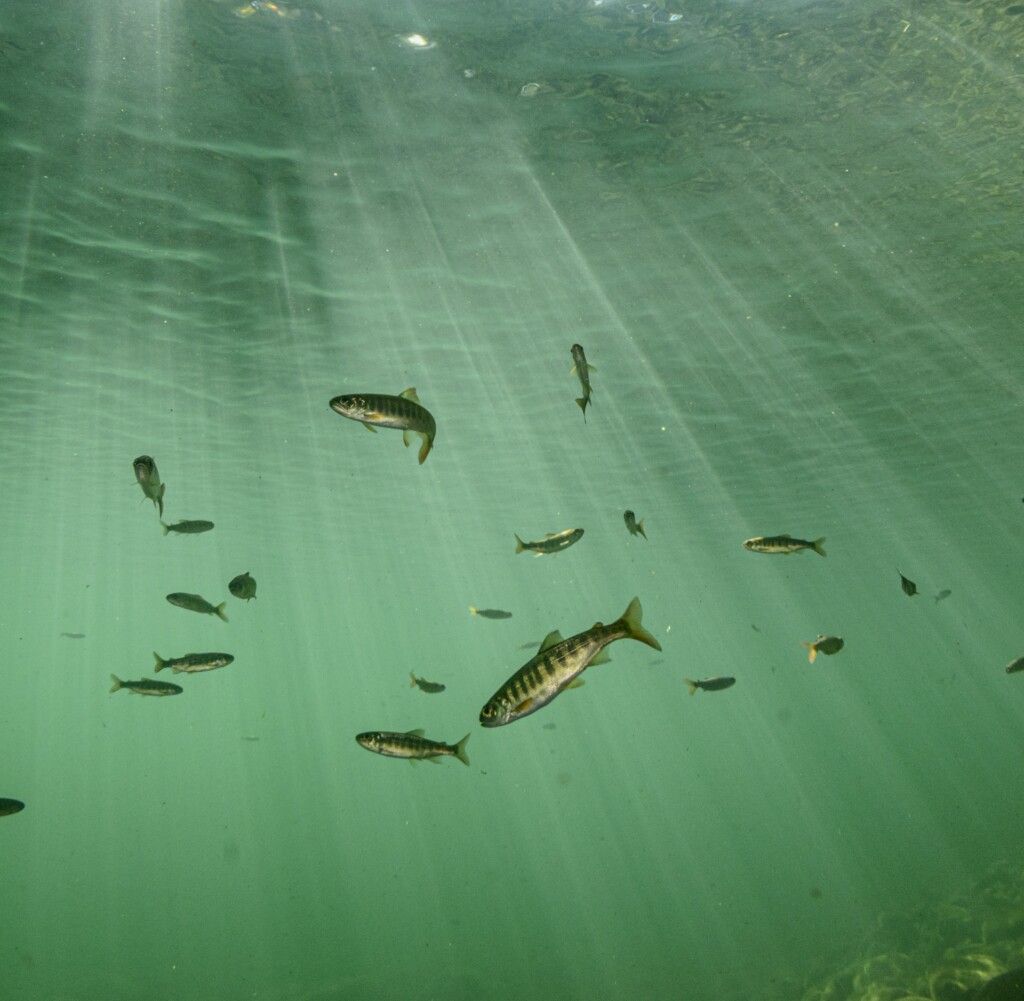
Taking steps to minimize your impact while out on the water keeps habitats healthy and the water clean thereby reducing the collective pressures that salmon face.
Read on to learn about steps that you can take to prevent negative consequences to the environment and minimize your impact while boating.
Grey water, the water that goes down the drain while washing up, can have impacts to our nearshore environment, especially when it is discarded straight into the water - such as when you are boating or camping. If you are able to, the best option is to wash on land at a marina where dishwashing and showering facilities exist so that water with soaps and detergents will get processed by municipal treatment plants, or at minimum, pass through a septic system.
If you must wash where you will discard the water directly to the environment, here are some considerations:

Similar rules apply for washing and maintaining your boat. Cleaning and maintaining your boat on land is the best option to avoid polluting the ocean and harming marine life. Cleaning within marinas is not a good option. They are typically set up in bays where there is less water exchange, and that means the pollution and residues that enter the water will stay there longer and concentrate in that area.
When cleaning your boat:
How can you be sure a product is safe?
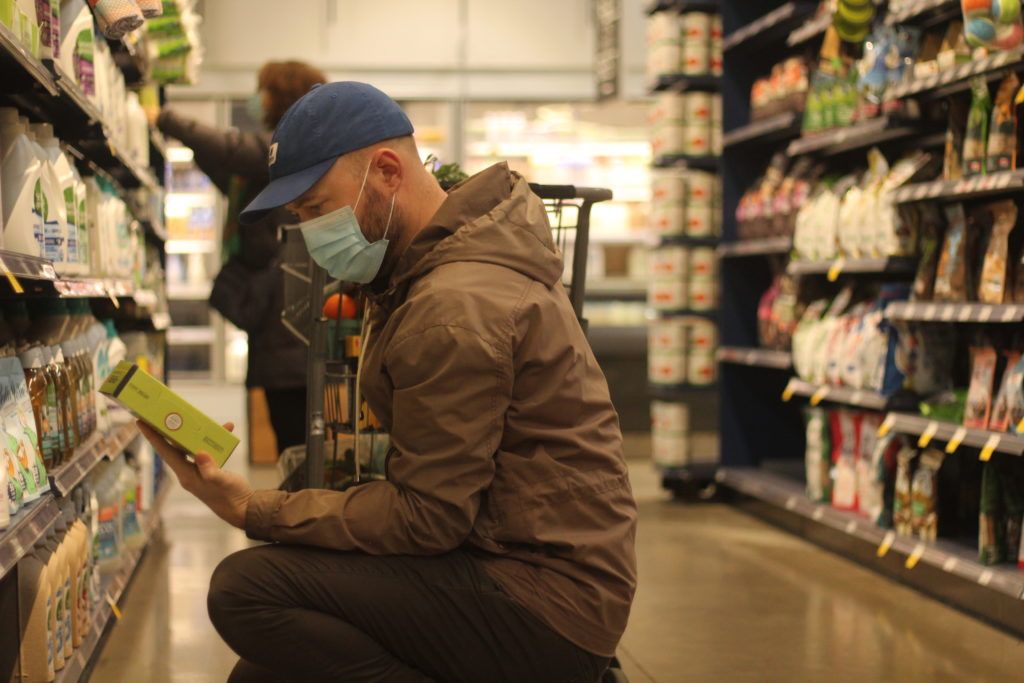
Greenwashing, weak or false environmental claims, can be hard to decipher when faced with a myriad of products on the store shelves. See our post about decoding eco-labels on cleaning products, or try creating your own safe cleaning products with food safe products you probably have in your pantry that are free of harmful chemicals.
Find products that have been assessed to be environmentally friendly in a searchable database created just for boaters!
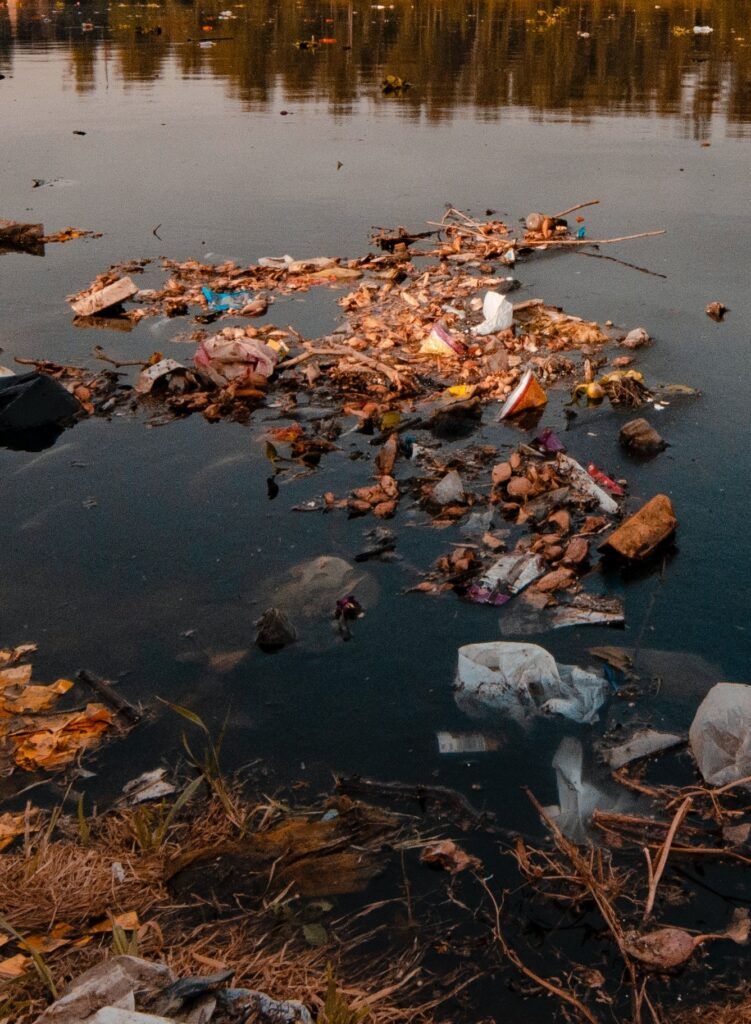
Boating can generate a lot of waste, and it is every boater's responsibility to dispose of it appropriately. Not only is trash in the water unsightly, it can cause death and destruction. Ghost gear (nets and fishing line) entangle fish, birds, and marine mammals; broken down plastics become part of the food chain; and chemicals impact the health of habitats and animals.
It is not always easy to get rid of things while out on the water, so here are some helpful tips:
Many boats are coated with anti-fouling paint. The reasons these paints keep your hull from becoming covered with critters is because they contain highly toxic ingredients such as copper pesticides that prevent life from thriving. As you can imagine, residuals from these paints in the environment are terrible for aquatic life.
It is best to avoid painting, instead you can keep your hull clean by:
If you must paint your boat, minimize your impact by:
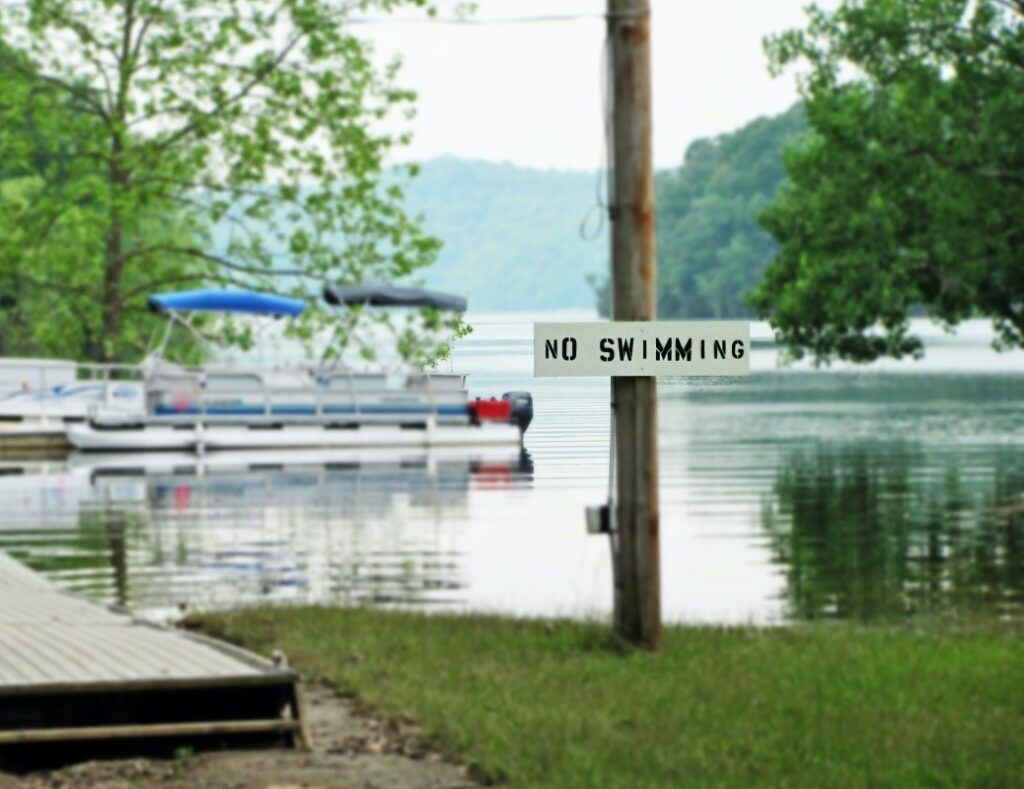
This goes without saying, but sewage needs to be managed with the environment in mind. Sewage waste contains concentrated nutrients, chemicals, and pathogens - all of which have serious environmental, human health, and economic consequences.
Excess nutrients can cause algal blooms that rob the water of oxygen. Chemicals including pharmaceuticals, which are found in sewage, can affect behaviour and reproduction of aquatic species. And, bacteria and viruses from human waste can affect sensitive habitats and species, make beaches unsafe for recreation, and cause shellfish closures.
Not only that, it’s against the law to release sewage within 3 nautical miles of shore and sewage can never be discharged in rivers or lakes. Violations can be up to $1 million fine and/or up to 18 months of imprisonment.
Here is how you can avoid releasing sewage to the water:
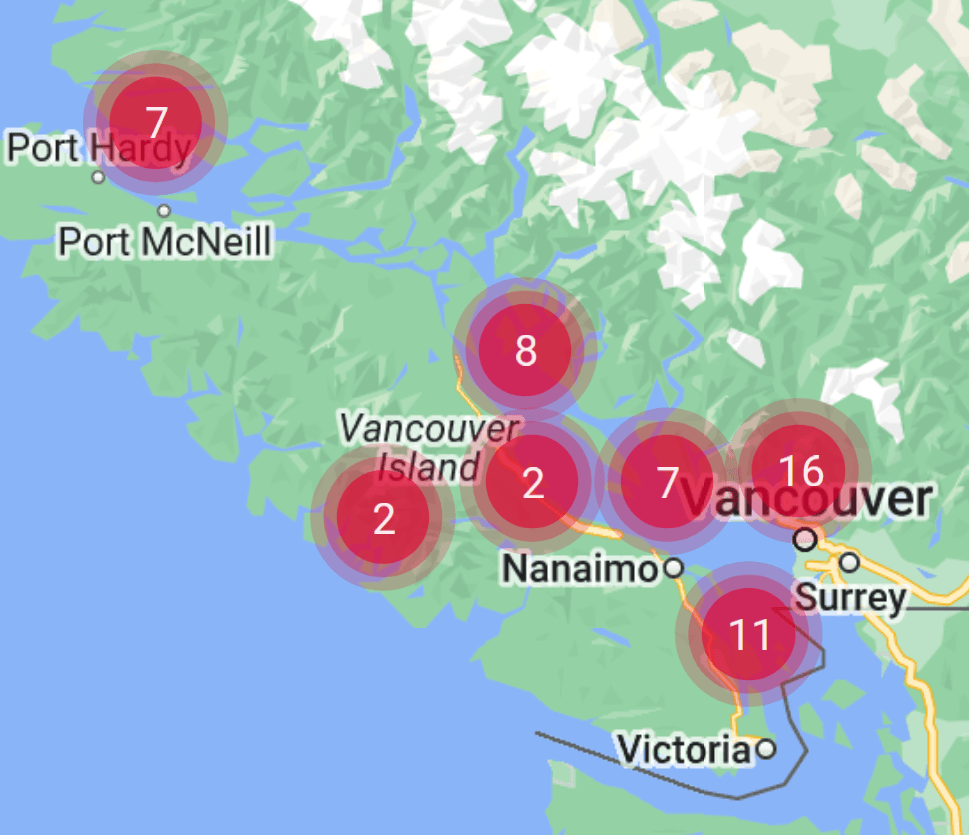
Fuel, oils, and all petroleum products used to power and maintain your boat are highly toxic to salmon, other fish, seabirds, shellfish, and, really, everything in the sea.
You can prevent accidental spills by taking care with the following tips:
Avoid anchoring in sensitive habitats like eelgrass meadows, which are important nursery habitat for juvenile salmon and a myriad of sea life. Eelgrass is easily damaged by anchoring - it becomes fragmented and uprooted, reducing the amount of healthy available habitat that these critters and fish need. Anchor deeper than 7m and check out our Tool Kit article on the subject for more tips.
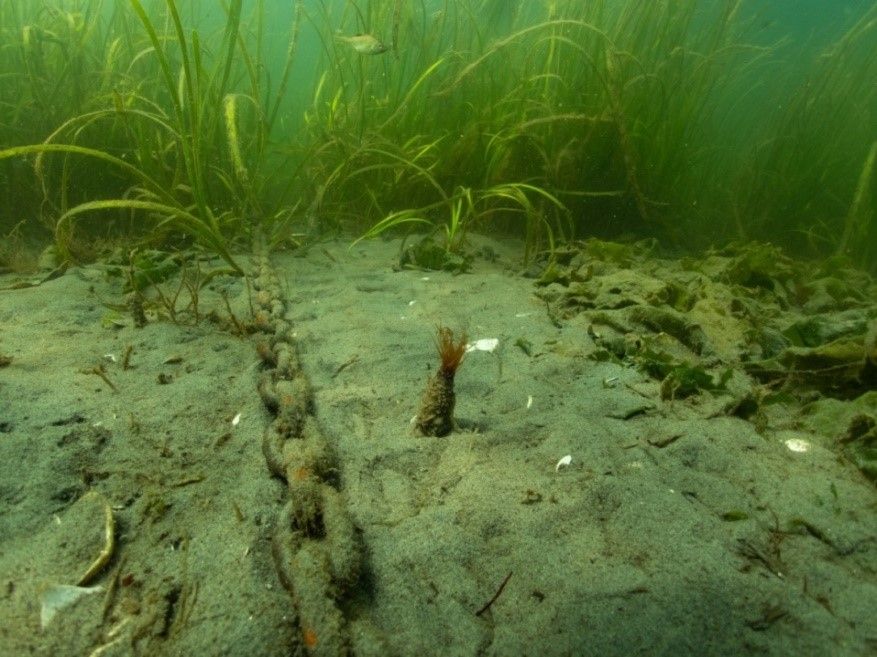
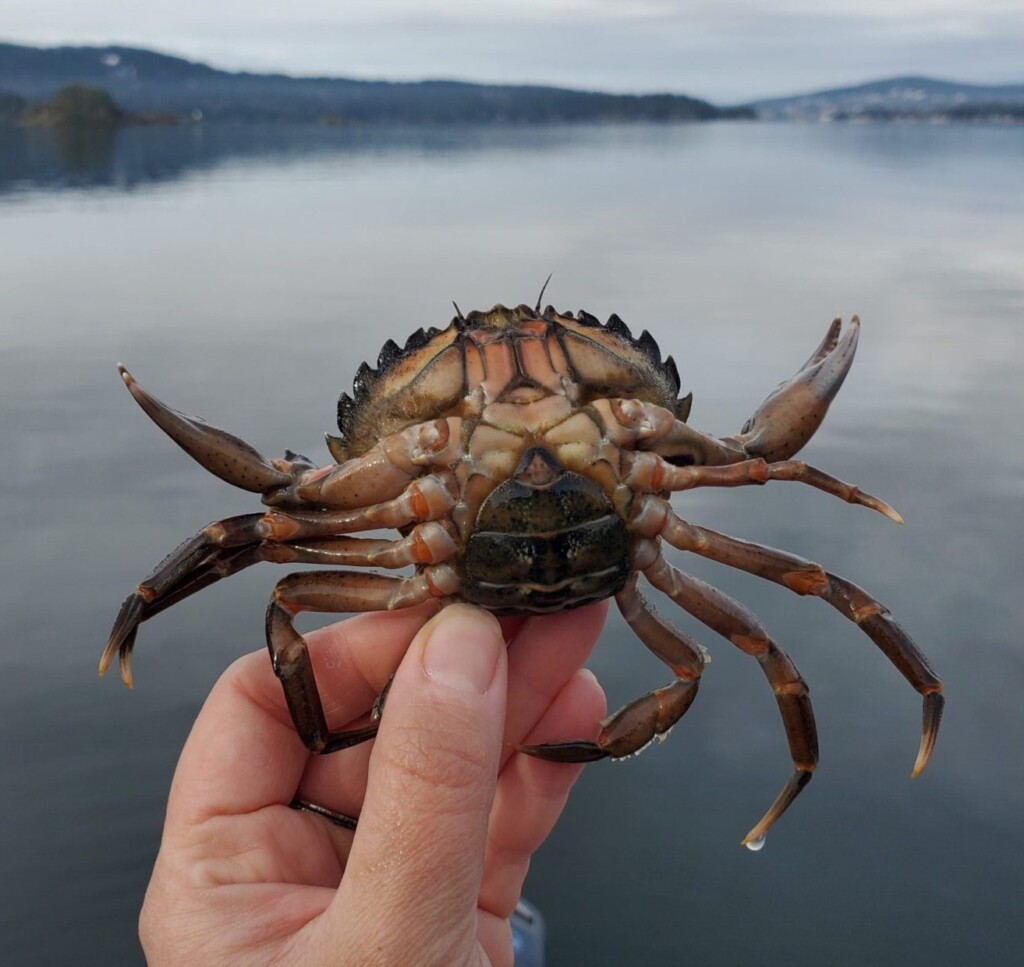
Whether you’re boating or paddling, we need to be careful that invasive species do not hitch a ride with us. Invasive plants and animals can change a landscape if given the opportunity. European green crabs, for example, damages habitats and competes with and preys upon native fauna.
Invasive species can easily be transferred from one body of water to another, so it is imperative to clean your boat and all your gear thoroughly and let it dry fully before using it elsewhere. The Invasive Species Council of British Columbia (ISCBC) provides great tips for preventing the spread of invasive aquatic species with their Clean Drain Dry educational campaign that we summarize below.
Recommendations for preventing the spread of invasive species:
If you invasive species, report them: DFO.AISPacific-EAEPacifique.MPO@dfo-mpo.gc.ca.
All good things come to an end, and for boats planning that end is essential to protecting the environment. Abandoned boats can become navigational hazards, leak contaminants, and move with the currents, scouring sensitive habitats and washing ashore as they go. Abandoned boats often sink, along with all the extra items on board creating more marine debris that is difficult to remove, and any fuel is that is left onboard can leak into the ocean. Responsibly 'retiring' your boat is also required by law, the Wrecked, Abandoned or Hazardous Vessels Act was implemented in 2019 to help regulate the disposal of vessels and outlines the responsibilities of vessel owners.
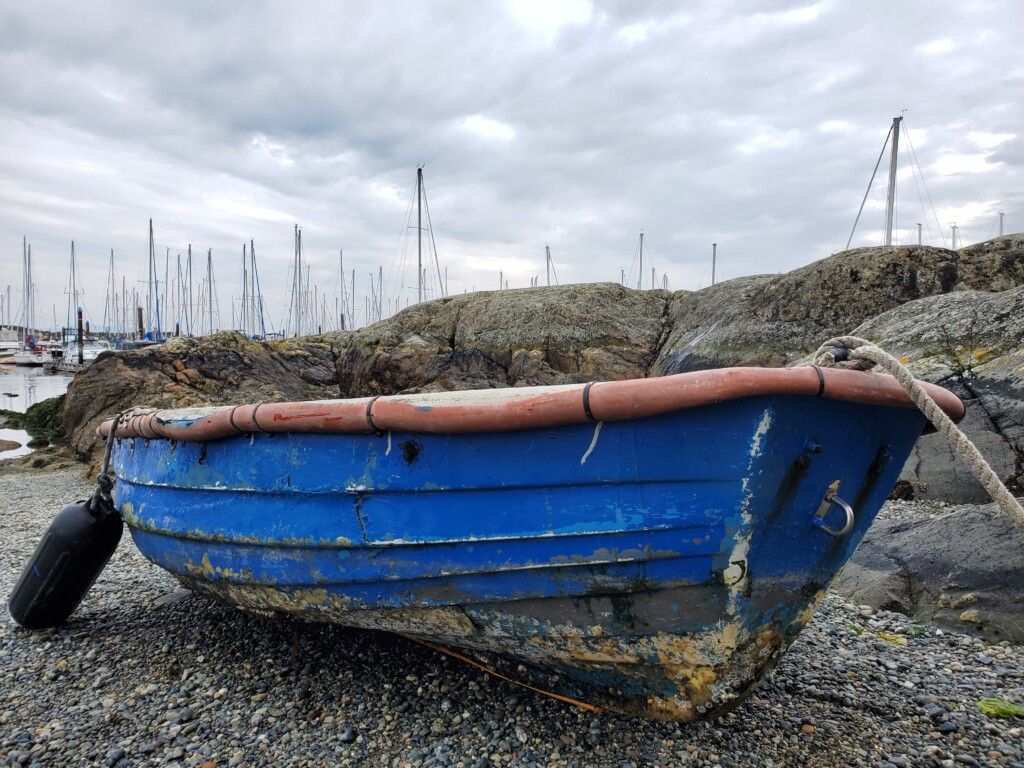
If your boat is no longer seaworthy, can no longer be safely operated, or the repairs to keep your boat operation exceed the monetary or emotional value of the boat, Boating BC Association suggests its time to retire your boat.
Here are the steps for retiring your boat:
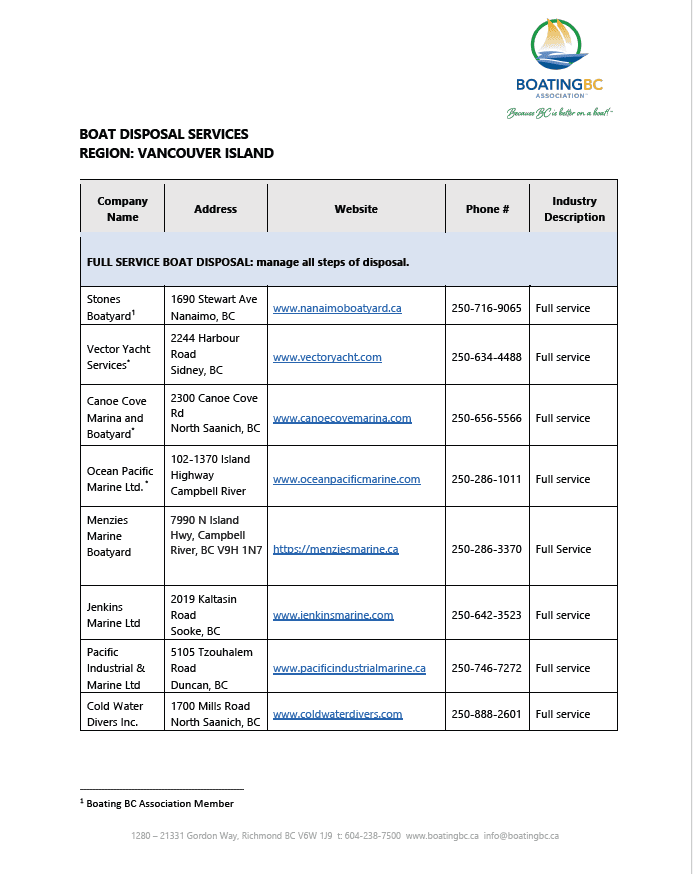
This can be most simply achieved by enlisting a reputable full service boat disposal group to manage all steps to responsibly dispose of your retired boat. The linked document on the left by Boating BC Association is a directory of boat disposal services for the Vancouver Island region. It includes both full service disposal contracts and contacts for each of the steps mentioned above.
If you are simply upgrading your boat but there’s still life left in your old one, you can sell it or donate it to an organization that may have use for a boat. Find local non-profits close to home with this map of stewardship groups on Vancouver Island.
If you find an abandoned boat, report it!
Report derelict, abandoned boats to the Dead Boats Disposal Society, who specialize in removing and salvaging vessels.

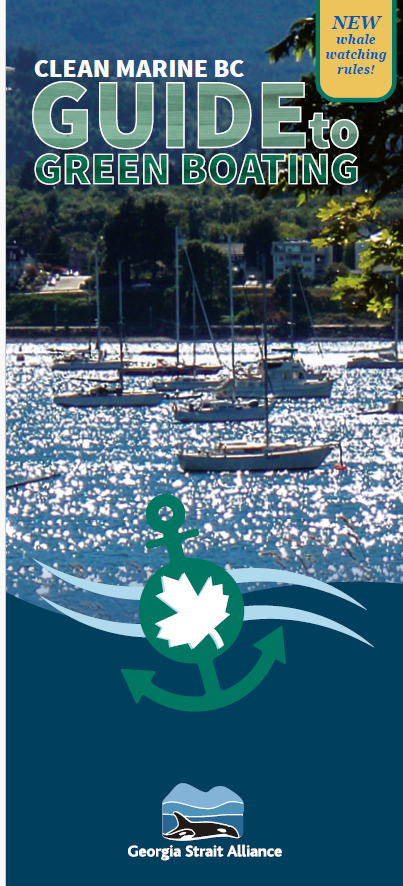
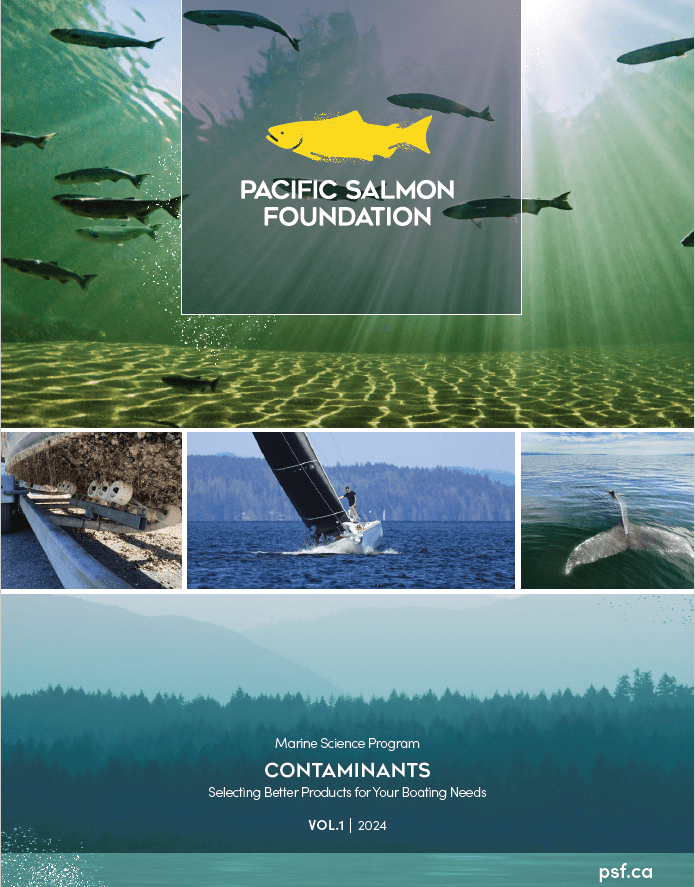
Check out this newsletter all about selecting better products for your boating needs!
Photo credits: Eiko Jones, Kyla Sheehan, Maria Catanzaro, Debby Hudson on Unsplash, Coastal Photography Studio